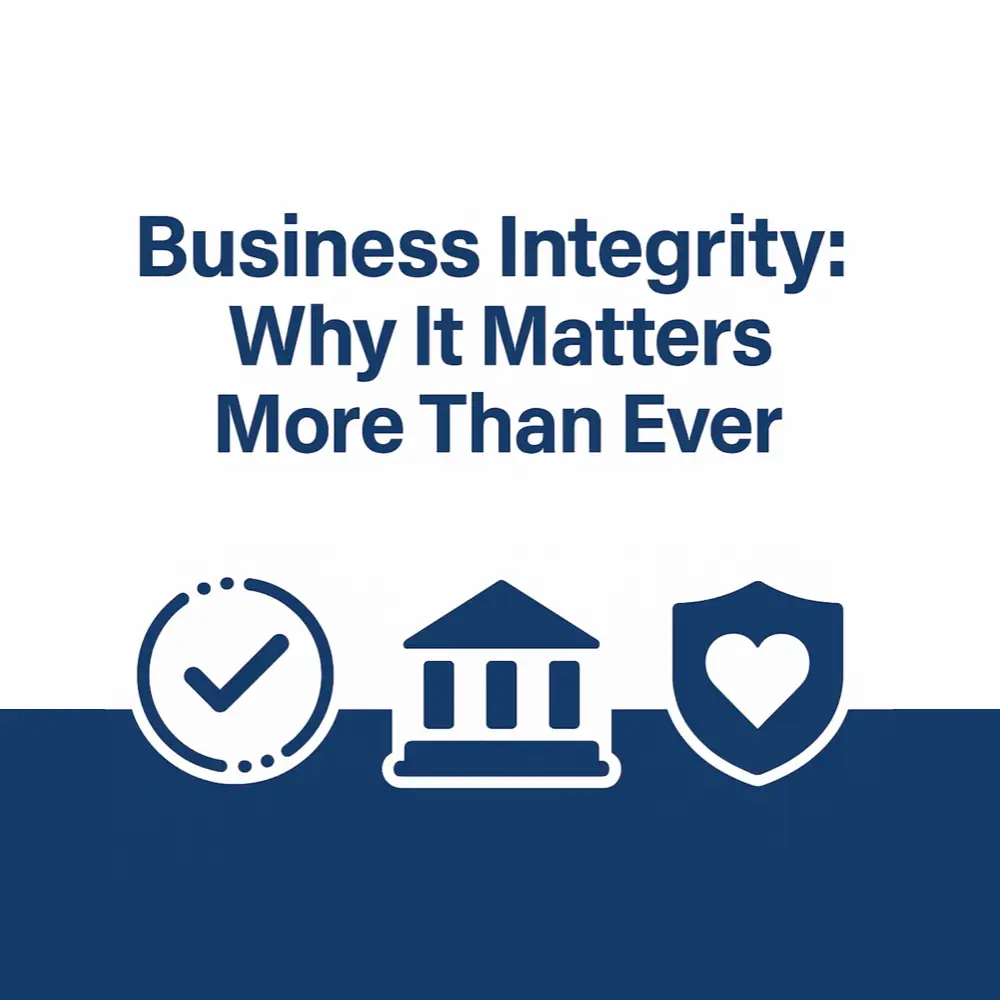Published on
June 30, 2025

In today’s business environment, success is measured by more than just revenue and growth. Stakeholders, customers, partners, and investors are placing increasing value on a company’s integrity. From transparent practices to lawful compliance, integrity has become a non-negotiable foundation for building trust and sustaining long-term growth.
But what exactly is business integrity? And why is it so critical in an age of rapid digital transformation, regulatory scrutiny, and global competition?
Business integrity is the practice of conducting business in an honest, transparent, and ethical manner. It means aligning your operations with values like fairness, accountability, and respect for laws and standards. Integrity is not just about avoiding fraud or unethical behavior - it’s about consistently doing the right thing, even when no one is watching.
Integrity touches every part of an organization:
Integrity is a culture and a strategy. Companies that embed integrity into their DNA earn loyalty, attract top talent, and weather reputational storms better than those that don’t.
Trust drives purchasing decisions, investment, and partnerships. A business perceived as untrustworthy risks losing its most valuable assets: its customers and stakeholders. In a world where reviews, ratings, and social media narratives shape public perception, maintaining integrity is crucial to protecting brand equity.
Whether you’re a local startup or a global enterprise, regulations are everywhere. Tax codes, privacy laws, financial reporting requirements - noncompliance is costly, both in fines and in reputational damage. Integrity means not cutting corners. It means proactive compliance, not reactive damage control.
Today’s consumers and investors demand transparency. They want to know where products are sourced, how companies treat their workers, and how business decisions align with broader ethical values. Integrity in business means being open about challenges, processes, and outcomes.
A company lacking integrity invites unnecessary risk. Fraud, data breaches, tax issues, and legal violations are often symptoms of a deeper integrity problem. Businesses with strong internal controls and ethical oversight are better equipped to identify and mitigate risks before they escalate.
When leadership prioritizes integrity, employees take note. A company that celebrates ethical behavior and rewards accountability fosters a culture where misconduct is less likely to thrive. This reduces turnover, enhances morale, and promotes long-term stability.
Environmental, social, and governance (ESG) metrics are now central to investment decisions. Integrity directly influences ESG performance. Investors increasingly favor companies with strong governance frameworks and clear commitments to ethical conduct.
Creating a culture of integrity requires intentionality. Here are a few steps companies can take:
Integrity isn’t a checkbox. It’s a continuous effort that requires vigilance, empathy, and transparency.
One of the most overlooked aspects of integrity is the quality, accessibility, and transparency of business data. Businesses make critical decisions every day based on financials, tax information, and legal standing. When data is fragmented, outdated, or hidden, the door opens to mistakes, non-compliance, or worse.
That’s why accurate, real-time access to regulatory and financial data is essential. You can’t maintain integrity if you can’t see the full picture.
This is where Business Health Pro (BHP) comes in. BHP is a powerful monitoring platform designed to keep your business in line with both tax and statutory compliance. It provides real-time access to:
By centralizing this information into one easy-to-use dashboard, BHP helps businesses stay compliant, transparent, and prepared. It’s not about replacing accountants or legal teams - it’s about equipping leaders with the visibility they need to maintain operational integrity.
Whether you're preparing for growth, undergoing due diligence, or simply aiming to run a clean and accountable operation, BHP gives you the edge. Integrity isn’t just a value - it’s a strategic advantage. And with the right tools, it’s easier than ever to uphold.3
Ready to reinforce your business integrity?